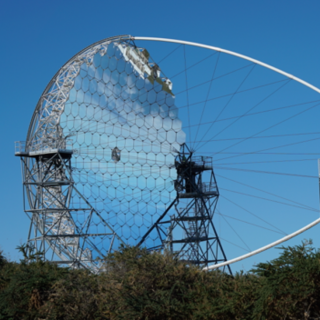Bibcode
Ahnen, M. L.; Ansoldi, S.; Antonelli, L. A.; Antoranz, P.; Arcaro, C.; Babic, A.; Banerjee, B.; Bangale, P.; de Almeida, U. Barres; Barrio, J. A.; Bednarek, W.; Bernardini, E.; Berti, A.; Biasuzzi, B.; Biland, A.; Blanch, O.; Bonnefoy, S.; Bonnoli, G.; Borracci, F.; Bretz, T.; Buson, S.; Carosi, A.; Chatterjee, A.; Clavero, R.; Colin, P.; Colombo, E.; Contreras, J. L.; Cortina, J.; Covino, S.; Da Vela, P.; Dazzi, F.; De Angelis, A.; De Lotto, B.; Wilhelmi, E. de Oña; Pierro, F. Di; Doert, M.; Domínguez, A.; Prester, D. Dominis; Dorner, D.; Doro, M.; Einecke, S.; Glawion, D. Eisenacher; Elsaesser, D.; Engelkemeier, M.; Ramazani, V. Fallah; Fernández-Barral, A.; Fidalgo, D.; Fonseca, M. V.; Font, L.; Frantzen, K.; Fruck, C.; Galindo, D.; García López, R. J.; Garczarczyk, M.; Terrats, D. Garrido; Gaug, M.; Giammaria, P.; Godinović, N.; Gora, D.; Guberman, D.; Hadasch, D.; Hahn, A.; Hayashida, M.; Herrera, J.; Hose, J.; Hrupec, D.; Hughes, G.; Idec, W.; Kodani, K.; Konno, Y.; Kubo, H.; Kushida, J.; Barbera, A. La; Lelas, D.; Lindfors, E.; Lombardi, S.; Longo, F.; López, M.; López-Coto, R.; Majumdar, P.; Makariev, M.; Mallot, K.; Maneva, G.; Manganaro, M.; Mankuzhiyil, N.; Mannheim, K.; Maraschi, L.; Marcote, B.; Mariotti, M.; Martínez, M.; Mazin, D.; Menzel, U.; Miranda, J. M.; Mirzoyan, R.; Moralejo, A.; Moretti, E.; Nakajima, D.; Neustroev, V.; Niedzwiecki, A.; Rosillo, M. Nievas et al.
Bibliographical reference
Monthly Notices of the Royal Astronomical Society, Volume 468, Issue 2, p.1534-1541
Advertised on:
6
2017
Citations
17
Refereed citations
15
Description
We present the first detection of the nearby (z = 0.084) low-luminosity
BL Lac object 1ES 1741+196 in the very high energy (E > 100 GeV)
band. This object lies in a triplet of interacting galaxies. Early
predictions had suggested 1ES 1741+196 to be, along with several other
high-frequency BL Lac sources, within the reach of MAGIC detectability.
Its detection by MAGIC, later confirmed by VERITAS, helps to expand the
small population of known TeV BL Lacs. The source was observed with the
MAGIC telescopes between 2010 April and 2011 May, collecting 46 h of
good quality data. These observations led to the detection of the source
at 6.0 σ confidence level, with a steady flux F(>100 GeV) =
(6.4 ± 1.7stat ± 2.6syst) ×
10-12 ph cm-2s-1 and a differential
spectral photon index Γ = 2.4 ± 0.2stat ±
0.2syst in the range of ∼80 GeV-3 TeV. To study the
broad-band spectral energy distribution (SED) simultaneous with MAGIC
observations, we use KVA, Swift/UVOT and XRT and Fermi/LAT data.
One-zone synchrotron-self-Compton (SSC) modelling of the SED of 1ES
1741+196 suggests values for the SSC parameters that are quite common
among known TeV BL Lacs except for a relatively low Doppler factor and
slope of electron energy distribution. A thermal feature seen in the SED
is well matched by a giant elliptical's template. This appears to be the
signature of thermal emission from the host galaxy, which is clearly
resolved in optical observations.
Related projects

Particle Astrophysics
The members of the Particle Astrophysics Group of the IAC participate actively in three large international collaborations of high-energy astrophysics: AMS-02 (Alpha Magnetic Spectrometer), the Cherenkov radiation telescopes MAGIC I and II and the Cherenkov Telescope Array Observatory ( CTAO). We also participate in the ASTRI mini-array, the gamma
Mónica Luisa
Vázquez Acosta